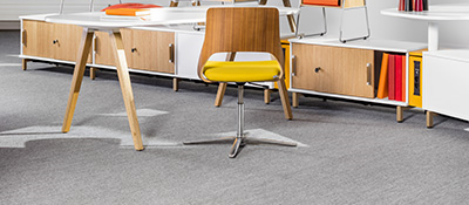November 8, 2016
Built environment urged to help summit meet climate change commitments 0
 Delegates from across the World are gathering in Morocco this week for the 22nd global climate change summit, known as the Conference of the Parties (COP22), where they will focus on the implementation of the Paris Agreement. This historic agreement was reached last December at COP21 in Paris, France, when for the first time, 191 nations committed to collectively addressing the effects of climate change. The Paris Agreement aims to keep the global temperature rise well below 2 degrees Celsius and to limit the temperature increase even further to 1.5 degrees Celsius. It was signed by all negotiating countries and has thus far been ratified by 75 member states. However, despite the fact that the agreement entered into international law on the 4th November, the UK is yet to ratify it, which according to the UK-GBC’s Campaigns and Policy Director, John Alker, is “pretty poor. We cannot afford to be dragging our heels on this; not only is there a moral imperative to tackle climate change, but the economic case for action is huge.“
Delegates from across the World are gathering in Morocco this week for the 22nd global climate change summit, known as the Conference of the Parties (COP22), where they will focus on the implementation of the Paris Agreement. This historic agreement was reached last December at COP21 in Paris, France, when for the first time, 191 nations committed to collectively addressing the effects of climate change. The Paris Agreement aims to keep the global temperature rise well below 2 degrees Celsius and to limit the temperature increase even further to 1.5 degrees Celsius. It was signed by all negotiating countries and has thus far been ratified by 75 member states. However, despite the fact that the agreement entered into international law on the 4th November, the UK is yet to ratify it, which according to the UK-GBC’s Campaigns and Policy Director, John Alker, is “pretty poor. We cannot afford to be dragging our heels on this; not only is there a moral imperative to tackle climate change, but the economic case for action is huge.“















 According to
According to 
 Just one in three IT decision makers believe advances such as cloud-based solutions, big data and wearable tech will be available in their industry within the next 12 months, according to a new study from Capita. Although the report – Trends vs Technologies – has yet to be published, the firm has released some of its findings. Based on a survey of IT professionals in the insurance, finance, legal services and manufacturing sectors, the study analyses nine key organisational trends and the implementation of related technology. The report claims that while many decision makers describe a tech trend as being relevant to their industry, several barriers to implementation mean solutions are not yet ready and in many cases might be lagging behind consumer take-up of the new technology. The trends named in the report are Big Data, Digital Workplace, Artificial Intelligence, Internet of Things, Wearable Tech, Robotics, Cloud Based Solutions, 3D Printers and Virtual Reality.
Just one in three IT decision makers believe advances such as cloud-based solutions, big data and wearable tech will be available in their industry within the next 12 months, according to a new study from Capita. Although the report – Trends vs Technologies – has yet to be published, the firm has released some of its findings. Based on a survey of IT professionals in the insurance, finance, legal services and manufacturing sectors, the study analyses nine key organisational trends and the implementation of related technology. The report claims that while many decision makers describe a tech trend as being relevant to their industry, several barriers to implementation mean solutions are not yet ready and in many cases might be lagging behind consumer take-up of the new technology. The trends named in the report are Big Data, Digital Workplace, Artificial Intelligence, Internet of Things, Wearable Tech, Robotics, Cloud Based Solutions, 3D Printers and Virtual Reality.
 There is no doubt that the UK’s office based knowledge industry is facing a crisis in the form of a ‘wellbeing deficit’. Both the Confederation of British Industry (CBI) and Health and Safety Executive (HSE) have reported record levels of absenteeism, with the latter attributing 23.3 million lost working days to work-related ill-health, such as depression, stress, anxiety and musculoskeletal disorders. A great deal is already known about the causes of the key issues of employee stress and demotivation, but more work needs to be done to establish how organisations can meet their corporate goals with regard to these issues, whilst still engaging, motivating and nurturing their workforce. A significant body of published research has identified that a sense of ‘personal control’ can have a hugely positive impact on employee wellbeing, but how can we engender that control when it comes to creating a productive working environment?
There is no doubt that the UK’s office based knowledge industry is facing a crisis in the form of a ‘wellbeing deficit’. Both the Confederation of British Industry (CBI) and Health and Safety Executive (HSE) have reported record levels of absenteeism, with the latter attributing 23.3 million lost working days to work-related ill-health, such as depression, stress, anxiety and musculoskeletal disorders. A great deal is already known about the causes of the key issues of employee stress and demotivation, but more work needs to be done to establish how organisations can meet their corporate goals with regard to these issues, whilst still engaging, motivating and nurturing their workforce. A significant body of published research has identified that a sense of ‘personal control’ can have a hugely positive impact on employee wellbeing, but how can we engender that control when it comes to creating a productive working environment?














August 6, 2016
HR analytics has the potential to stem the silver brain drain 0
by Matt Henderson • Comment, Technology, Workplace
(more…)